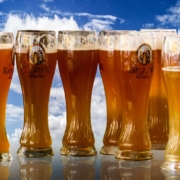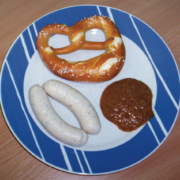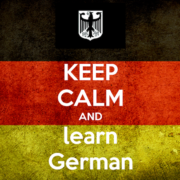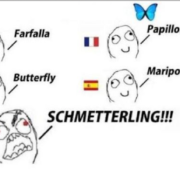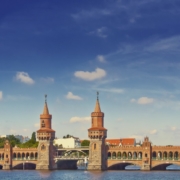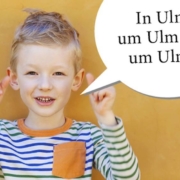Bud Spencer, Di Caprio, Michael Fassbender: 15 celebrities that unexpectedly speak German
It’s true, actresses, actors and singers have a talent when it comes to the recognition and reproduction of sound.
German however remains a language that few people, at least in the past generations, decided to learn unless it was for work reasons. What follows is a list (partly inspired from the one made by Smosh) of American, but not only, celebrities that can modestly speak German, as the videos demonstrate.
Bud Spencer
The actor from Naples was a real star in Germany, as so was his colleague Terrence Hill. His autobiography reached the vectors of sale a few years ago. All his movies were distributed in cinemas and in the ’70s it was common to find him on German TV to promote his movies. He studied German in school in Italy and never failed to demonstrate it, as this video shows.
Sandra Bullock
The Oscar winning actress with The Blind Side, and for a few years the most paid actress in the world, is the daughter of a German singing teacher, herself the daughter of a missile scientist that lived in Nuremberg. It was in Baveria that her father, the American John Bullock, at the time serving the American army, met her mother and began a love story lived through the States and Germany. Although she was born in Arlington, Sandra Bullock lived in Nuremberg until the age of 12.
Chris Pratt
The Guardians of the Galaxy start learned (well) German in school. The father, American, has German origins, but not only: as he himself admits in the past he nurtured a true passion for Goethe’s language.
Leonardo Di Caprio
On the one hand, as his surname discloses, he has Italian origins. On the other hand, from his mother’s side, German grandparents. It was his grandmother, from a small town close to Düsseldorf, that taught the Oscar winning actor that he uses at times to make his German audience smile.
Mark Strong
One of the greatest “supporting actors” of this century, the excellent Mark Strong has an Austrian mother, but not only. He studied law in Munich’s university for one year prior to dedicating himself completely to acting, his passion since youth.
Kirsten Dunst
The American actress holds to this day her German citizenship. The father was in fact a doctor from Hamburg that moved to the States and her mother (that has Swedish origins) worked for Lufthansa. German is thus a family affair for the Dunst family
Paul McCartney
McCartney learned German in school as a child. It became useful when the band, unknown at the time, made Hamburg its continental base, performing there any time they had the chance. The first time was in 1960 when, as reported here “Allan Williams, owner of a music cafè in Liverpool had to organize a tour in Germany for “Derry and the Seniors”, a Liverpool-based rock band. But things went wrong and Williams was forced to find a substitute band in a short amount of time. He asked The Beatles, whom no one at the time heard of, that immediately accepted”. Bild also talks about it here
Terrence Hill
Unlike Bud Spencer, Terrence Hill (aka Mario Girotti) speaks German both because he studied it and because his mother came from Dresden. It was there that, along with a chemist father working for the Schering, he moved when he was 4 in 1943, in the midst of the second world war. He lived there until 1945 with his grandparents in the close Lommatzsch, prior to returning to Venice, his father’s city.
Gene Simmons (Kiss)
The singer of the band Kiss was born in Israel (his real name is Chaim Witz). His mother, a Hungarian jew, lived through the time of concentration camps. He spoke German and taught it, and his son today speaks Hebrew, Hungarian, German and English
Vladimir Putin
From the man of KGB to Dresda, eastern Germany, both before and after the fall of the Wall, Putin could have not not known German….
Michael Fassbender
He was born in Germany, in Heidelberg to be precise, even though he always kept his Irish citizenship. In Bastards without Glory that language learned due to the origins of the father (a known German chef) allowed him to convince Tarantino to give him the role that served him as a trampoline for his career.
Kim Cattrall
The Sex and the City star, although having a well-established career in English speaking countries, in the 80s as she was married to Andre J.Lyson (they then divorced in 1989) lived in Frankfurt.
Karl Urban
The Lord of the Rings star (do you remember Éomer?) and of Star Trek, was born and raised in New Zeland, but his father is German and always spoke to him in his language.
Sarah Chalke
Anyone who watched Scrubs knows this very well: Sarah Chalke speaks very good German. It is the series that mostly insisted on her quality, building up different funny scenarios. Her grandparents from her mother’s side live in Peez, close to Rostock.
Donna Summer
The american singer that passed away in 2012 lived for long in Germany throughout the 70s as she became the protagonist of the theatre version of Hair. There she met Austrian Helmut Sommer with whom she had a child with. This is where here surname comes from (she was born Donna Gaines).
© PROGage Skidmore CC BY SA 2.0
—————-
Do you wish to make it one day on this list? Then take a look at the German courses that Berlino Schule organizes in Belrin here!


